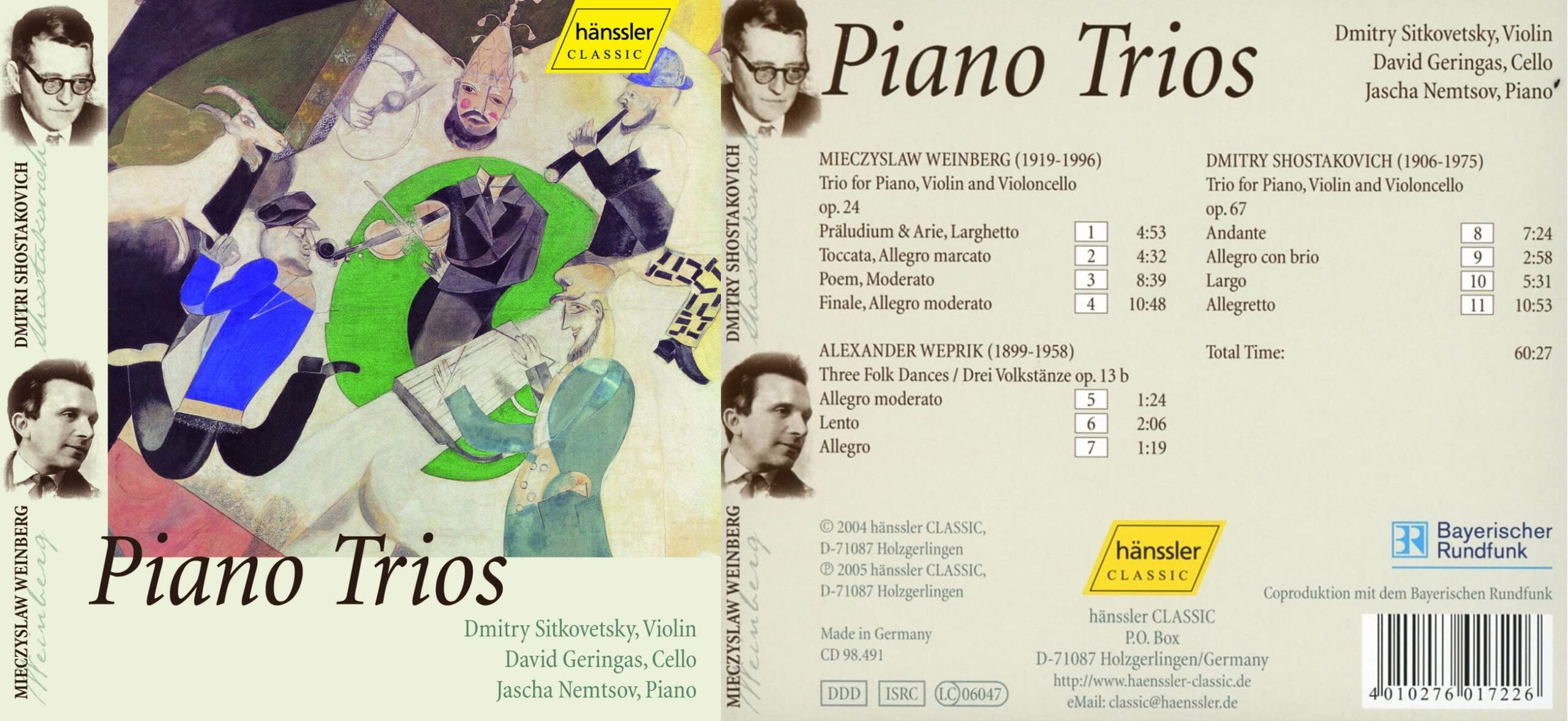
Gramophone | Piano Trios

Next to the incomplete Myaskovsky symphony cycle, the saddest casualty of the demise of Olympia was Mieczyslaw Weinberg, leaving us without excellent recordings of much of his chamber music. His Piano Trio and Piano Quintet, composed in 1945 and 1946, were among the first fruits of what was to be his permanent residence in Moscow, following his uprooting first from Poland then from Belorussia in his flight from the Nazis. It is true that these pieces bear many signs of his acquaintance with Shostakovich, whose disciple he was rapidly to become; the Piano Trio in particular shadows the overall movement-design of Shostakovich’s Second Trio rather closely. Yet, as has often been pointed out, Weinberg had as much influence on Shostakovich as the other way round. His Trio is certainly far more individual than, say, Gyorgy Sviridov’s from the same year (a perfectly respectable but, by comparison, essentially pastiche work), and it is by no means embarrassed by the company of Shostakovich’s masterpiece on the same CD.
Trained in Leningrad but resident in Germany since 1992, Jascha Nemtsov has been making a name for himself both as pianist and scholar, mainly for his work with little-known music by Soviet Jewish composers. In these trios he is fully the equal of his better-known partners, displaying an admirably clean technique and a sensitive but never self-indulgent temperament. All three works receive authoritative and thoughtful interpretations (the Weprik Dances are short, catchily klezmerish pieces from 1928). The recording is on the close and dry side but the playing is fine enough to take such exposure.
The Weinberg alone would make this a strong recommendation but the Shostakovich is also competitive with the best on disc – a tellingly characterised and superbly structured account. As with several recent versions, however, I’m at a loss to know why the violin and cello seemingly ignore the instruction to be muted at the crucial cyclic return in the finale (from 7’12” on this disc). That goes against the score, against the composer’s own recordings, and against what I take to be the essential character of struggle against the odds. If there is an edition that sanctions this, I don’t know of it, and I’m starting to wonder whether mutes are actually being used but that something in their modern design is making them less effective than they used to be.

